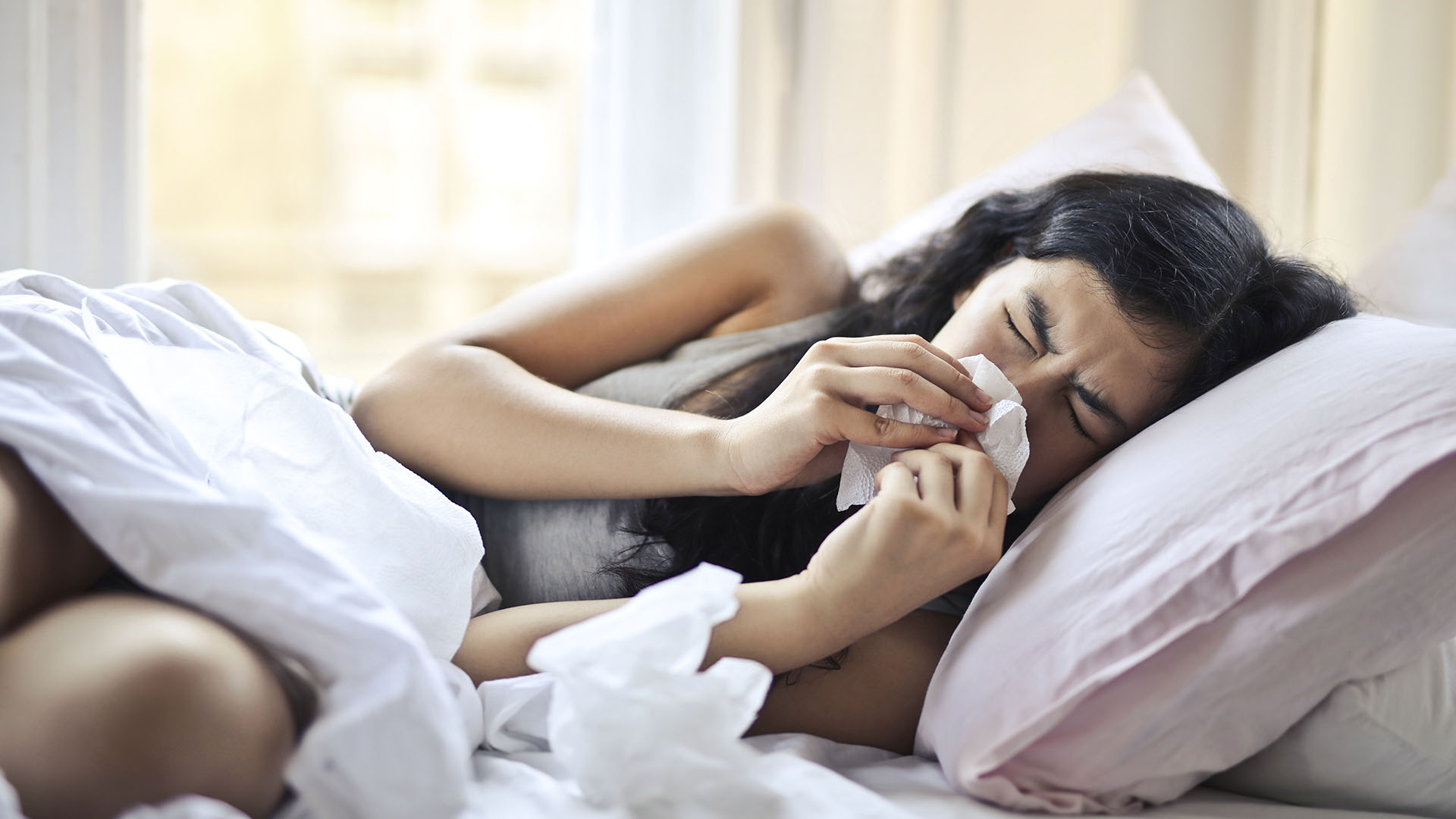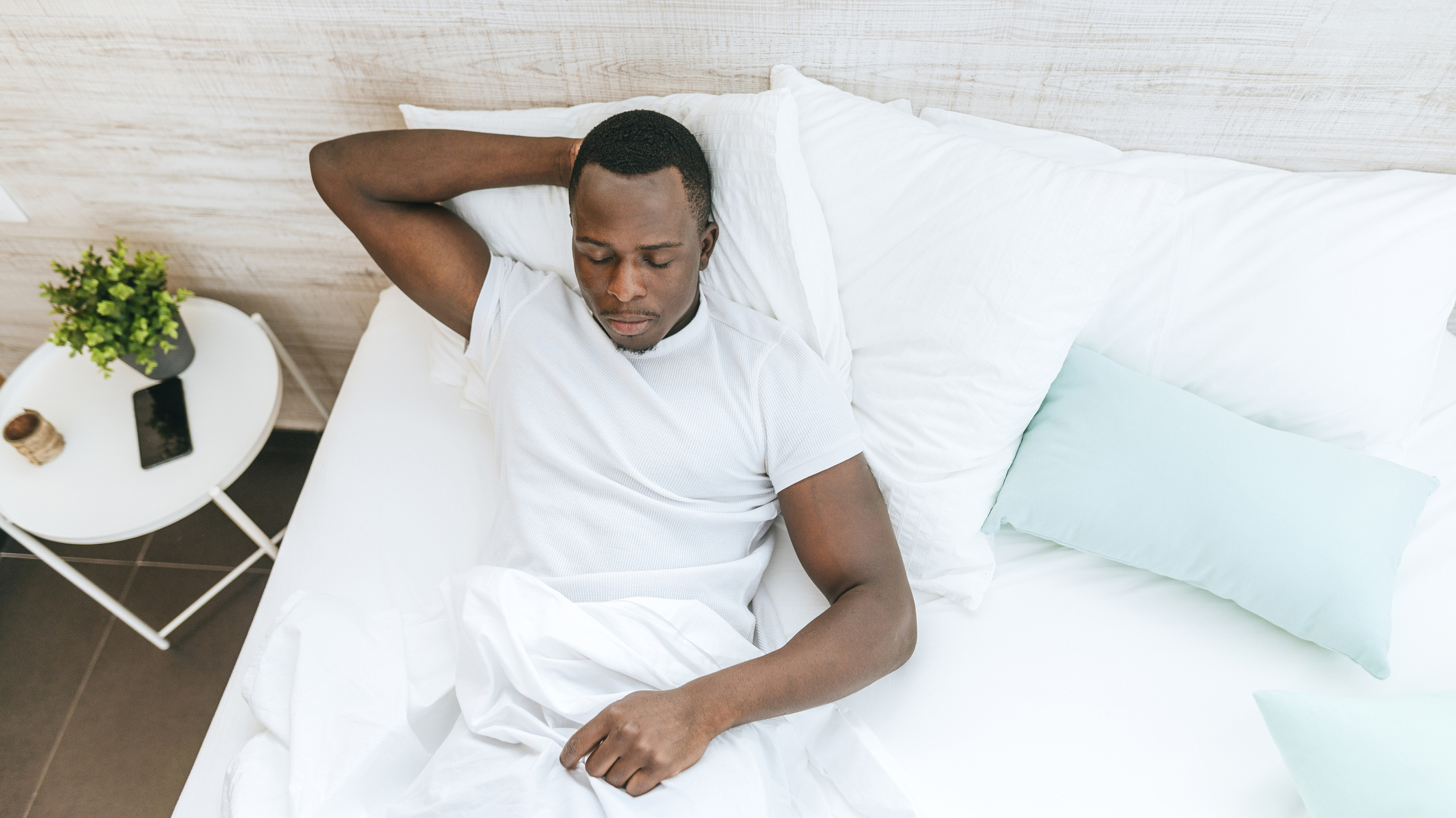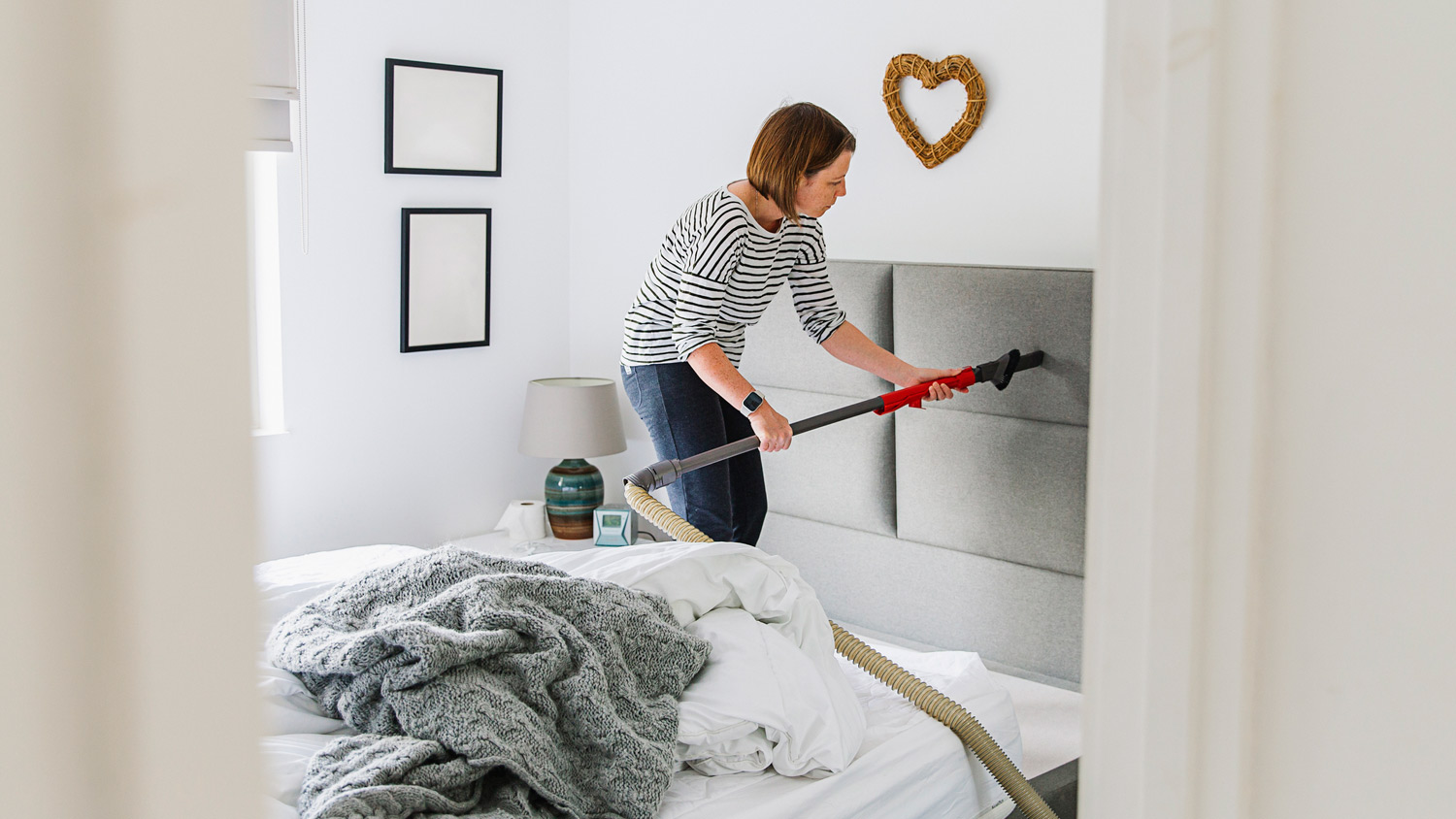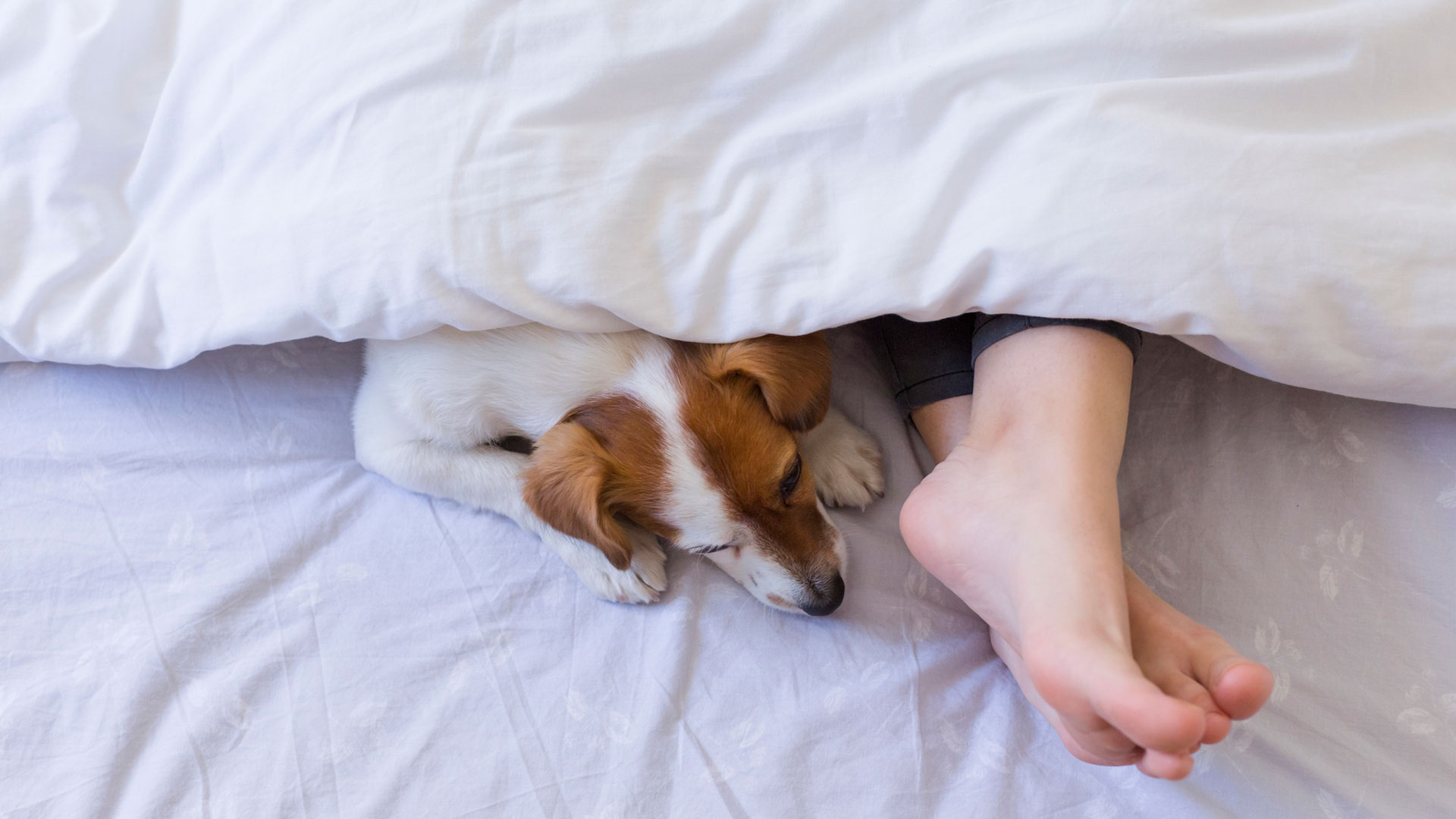How to sleep better with hay fever symptoms: 5 expert tips
If hay fever symptoms are ruining your sleep we have expert advice that can help

Sign up for breaking news, reviews, opinion, top tech deals, and more.
You are now subscribed
Your newsletter sign-up was successful
While for many of us the approach of summer and the appearance of spring blooms is a welcome development, for some it means the arrival of seasonal allergies and hay fever symptoms, and that in turn can mean interrupted sleep.
When pollen counts are high you'll know about it if you're prone to hay fever. Symptoms include sneezing, a runny or blocked nose, itchy, red or watery eyes and similar irritation in the throat, mouth, nose and ears. And while merely getting through the day with a full-blown bout of hay fever symptoms, getting through the night can be even harder, and even having the best mattress won't make a lot of difference when allergies are making sleep impossible.
One in five people will suffer from seasonal allergies at some point in their life; thankfully there are a few things you can do to improve matters and reduce the chances of hay fever symptoms wrecking your sleep. Dr Lindsay Browning, psychologist, neuroscientist and sleep expert for And So To Bed has shared some ways to aid sleep when sleeping is difficult as a result of your hay fever symptoms.
1. Keep your head elevated

You may have treated yourself to the best pillow, but if it's not lofty enough it could be causing you difficulties when you're trying to sleep with hay fever symptoms. "You should try to keep your head elevated as much as possible," says Lindsay. "Try adding an extra pillow and shift your sleeping position to a slightly more seated one and remain on your back.
"This will bring gravity back into the mix allowing excess mucus to drain and not pool, lessening the irritation. It is important to note though that if your breathing is affected by sleep apnoea and not congestion, sleeping on your back is not recommended, in these cases it is best to sleep on your side."
2. Buy an air purifier
If you're struggling with hay fever or asthma, having an air purifier in the bedroom can make a real difference, says Lindsay, as it helps remove pollen and dust particles from the air that will trigger symptoms. "If your congestion is a result of a virus," she adds, "you can use a humidifier to help loosen the mucus on your lungs and aid in clearing your sinuses."
3. Keep your bedroom and bedding clean

Another way to ensure you sleep better when coping with seasonal allergy symptoms is to regularly clean your bedroom and bedding. Lindsay points out that humans shed 200 million skin cells every hour, which is what makes up dust, amongst other things.
Sign up for breaking news, reviews, opinion, top tech deals, and more.
"Ensuring you regularly vacuum the carpet, dust the surfaces and wash your bedding will prevent dust from building up and make sleeping easier," she says. However she recommends being careful about how you deal with your washed bedding if hay fever is a problem for you. "Be cautious about drying your freshly cleaned bedding on the line outside though as you will get lots of pollen in the bedding from the outdoor air."
4. Evict pets from your bedroom

They're our best friends and all that, but if you're the sort of soft-hearted pet owner who lets their furry friends sleep in the bedroom (or on the bed) then they could be making your hay fever symptoms worse. "This is because they can increase allergens in the bed," notes Lindsay. "Pet hair and dander are two of the most common allergens which will enhance and make your hay fever symptoms even worse at night."
5. Have a shower before bed
Keeping your bedroom clean, bringing in an air purifier and sending your pets off to sleep elsewhere can make a big difference to the amount of pollen and other allergens that could be triggering seasonal allergies, but you might still be bringing them into bed with you. So Lindsay recommends getting rid of those with a shower before you go to bed.
"A shower will help wash away any pollen that may have clung to your skin and hair while outside," she points out, and a shower is a great way to get rid of them rather than transferring them to your bed linen. "This is also a great tip for those extra warm summer evenings," she adds, "as a cool, not cold, shower will help lower your body temperature, making it easier to drop off."
And as a final tip, for coping with hay fever symptoms, she suggests keeping your windows and doors closed during the day to help prevent pollen from entering your home.
- How to sleep through the night - more tips for better sleep in general

Dr Lindsay Browning is a chartered psychologist, neuroscientist, and sleep expert at Trouble Sleeping. A member of the British Sleep Society and the American Academy of Sleep Medicine, she has published several academic papers and an international self-help book: Navigating Sleeplessness.

A professional writer with over a quarter of a century's experience, Jim has been covering mattress and sleep-related subjects for TechRadar, Tom's Guide and T3 over the past few years, gathering an in-depth knowledge of the workings of the mattress industry along the way. Previously Jim has covered a wide variety of subjects, working widely in the tech and gaming sectors, and more recently covering the design and wellness industries.